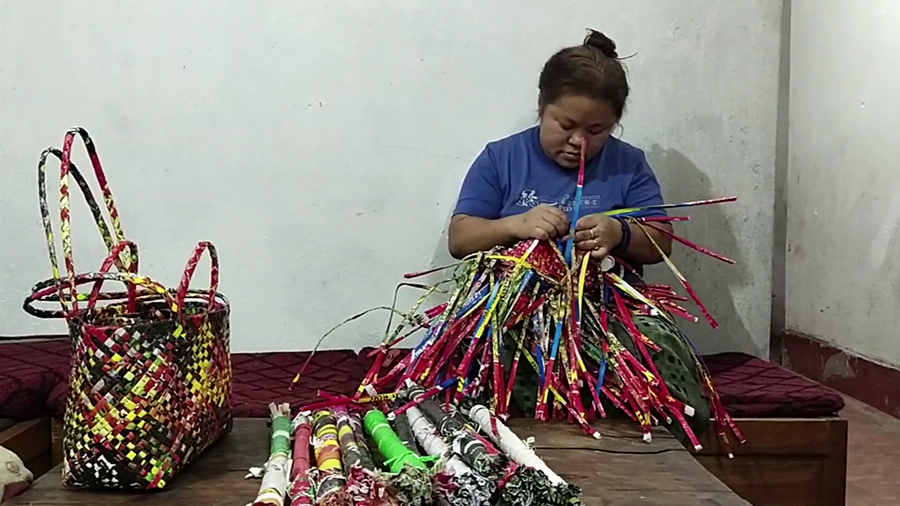
Growing waste is one of the costs the country is paying for modernization and development. Most of the districts, today, are faced with challenges in managing waste. In Samdrup Jongkhar, a Civil Society Organization has been helping reduce waste by empowering women with skills to weave products out of unwanted plastic wastes.
Dechen spends her free time weaving plastic bags and baskets. A single mother of two, Dechen works in a hotel for a monthly salary of Nu 8000. But having to pay more than half of it as rent, she says it has been difficult to sustain her family.
The waste craft training has come as a blessing for her. Although not much, she says the money she makes from selling the baskets is enough to meet the daily expenses.
“I work in a hotel. I am a single mother of two, it is hard to meet expenses, so I started doing this. I used to make around Nu 5000 in a month but nowadays I make about Nu 2000 to 3000.”
Dechen says it takes about two days to make a normal-sized basket which uses about six plastic rice sacks or about 60 plastic bags. She collects the plastics mostly from her friends and nearby shops.
Like Dechen, there are about 50 women in Samdrup Jongkhar who make extra money from weaving bags and baskets from plastic wastes.
“I didn’t know anything before, but after attending the training from Samdrup Jongkhar Initiative, I have been weaving plastic bags. It has been beneficial to us. I buy rations from the money that I earn from making plastic bags,” said Lungten Zangmo.
The Samdrup Jongkhar Initiative, a Civil Society Organization based in the district, started training women in the waste craft in 2015. More than 300 women from across the country have been trained so far.
Kinley Wangchuk, Samdrup Jongkhar







